|
Sheep milk: A pertinent functional food
Arpita Mohapatra, Ajay Kumar Shinde, Raghvendar Singh Abstract Modern human diet and changes in lifestyle are emerging as a challenge in developing countries resulting to endless ailments. Thus, in modern spectra of human health, bioactive foods play a pivotal role. Under the umbrella of food and nutrition security, functional dairy foods have become the need of the hour. Sheep milk is one of the functionally active dairy foods and it is also considered as nutritional powerhouse. The beneficial role of sheep milk results from its fatty acid, immunoglobulin and non-immune protein contents. In human gut, milk proteins turn into excellent source of bioactive peptides with antioxidative, antimicrobial, antihypertensive, immunomodulatory and antithrombotic role. It is also used in anti-ageing formulations and cosmetic soap preparations to soothe psoriasis and skin eczema like chronic conditions. The unique physicochemical and biochemical properties of sheep milk also include prebiotics and probiotics which make it perfect functional food for human health promotion and disease risk reduction. The milk from Indian sheep is relished by the shepherds and their households. They claim that it has many health benefits, but it is an untapped area by the Indian researchers. The major challenge in Indian prospect is non availability of dairy sheep breed, but their milk functional potential cannot be ignored. This review is focused on worldwide work done on sheep milk for its unique functional characteristics. Keywords Sheep milk; Milk composition; Functional food; Bioactive peptides READ MORE
0 Comments
American Institute for Goat Research (AIGR), Langston University, held the Annual Goat and Hair Sheep Field Day in May. The AIGR hoped that Field Day would resume as usual in 2021. however, due to lingering and even spiking COVID 19 infections in Oklahoma and because of the slow pace of vaccinations in early 2021, the 2021 Goat and Hair Sheep Field Day was not held in person but held virtually via Zoom. The theme was “Goat and Lamb Cookery & More” and took place in smaller 2-to-4-hour segments spread over several weeks. Among the sessions, the two most popular workshops entitled “Internal Parasites and FAMACHA training in Small Ruminants” and “Goat Nutrition and LINC” were recorded and uploaded to the Langston University Ag YouTube channel http://www.youtube.com/user/taglu01.
Among those who attended the parasite workshop, more than 20 people worldwide received a FAMACHA certificate and a FAMACHA card. If you are interested in being certified, you can still do it by fulfilling the following requirements.
Among the workshop videos, the “Primer on Parasites” has been highlighted in Sheep & Goat magazine’s (www.ranchmagazine.com) in June 2021 issue (Volume 29, No.5). Goats of the World and World of Goats – Emerging from the Shadow of COVID-19 This virtual conference will take place from 2 pm to 6 pm European Time (Paris time).
Goat breeding, as part of the livestock sector is a key contributor to food security, nutrition and livelihoods, especially for the world’s most vulnerable populations. Since the global outbreak of COVID-19 in 2020, the world’s goat production and the life of the farmers have been severely affected. The aim of the conference is to investigate the negative impacts (current and potential) of the pandemic e.g. reduced access to animal feeds, inputs and services; reduced processing capacities; compromised storage and conservation options; difficulties in inland and international transportation; animal health problems because of reduced testing and diagnostic capacity; lack of animal disease control programmes. Reports will be delivered on national and regional levels (by Country Representatives and Regional Directors of IGA), hoping to get a global overview by the end of the conference. The organisers would be more than happy to see some actions, how to mitigate the impact of COVID-19 on the goat sector.
Authors: David Pugh N. (Nickie) Baird Misty Edmondson and Thomas Passler Description Get practical answers from the only guide on the care of sheep, goats, and cervids! Authoritative yet easy to read, Sheep, Goat and Cervid Medicine, 3rd Edition covers all the latest advances in the field, including diseases and medical treatment, surgery, pain management, theriogenology, and nutrition. Clear instructions and hundreds of full-color photographs guide you step by step through common procedures including restraint for examination, administration of drugs, blood collection, and grooming. New to this edition is coverage of deer and elk medicine, reflecting the growing interest in these ruminants. Written by an expert team led by Dr. D.G. Pugh, this comprehensive reference is ideal for veterinarians and also for owners of sheep and goats. Key Features
Table of Contents
Appendix II: Practical Fluid Therapy Appendix III: Normal Values and Conversions Livestock Emergency Guidelines and Standards (LEGS) is pleased to announce that the second webinar in its upcoming series is open for registration:
Nutrition and Livestock in Emergencies Tuesday 3rd November 2020 at 12 noon GMT Presenter: Dr Kate Sadler Malnutrition represents the single most important threat for children worldwide and brings about substantial impacts both on humans and economic potential. The webinar will review the key issues relating to human nutrition in the context of livestock-based emergency interventions, with particular attention to the following key topics:
Registration: Please register at the following link: https://us02web.zoom.us/webinar/register/WN_0Iz6tNhYR6yZZhvck4hA8g After registering, you will receive a confirmation email containing information about how to join the webinar. The LEGS Discussion Paper on Nutrition and Livestock in Emergencies, written by Dr Kate Sadler, will be available prior to the webinar on the LEGS website resources page and will also be advertised via the LEGS mailing list. We look forward to you joining us. Questions? Email: [email protected] A course presented by Dr. Christopher Lu in December 2019 National Taiwan University invited Professor Christopher D. Lu to offer a course entitled, “Goat and the World” at the Department of Animal Science and Technology in December 2019. Dr. Lu covered the following subjects:
Registration for Dr. Lu’s course reached full capacity within 24 hours. It was one of the largest classes in the history of the department. A sample of the comments from students who participated included:
The international goat conference that took place in Kouty from November 9th to 10th, 2018, included visitors from Poland and the Slovak Republic.
Associate Editor for Nutrition  Dr. Raul Bodas holds a B.Sc. and a Ph.D. title in Veterinary Science, specialty Animal Production from the University of León (Spain). He spent one year as a PostDoc at the Division of Farm Animal Science (University of Bristol, UK). He worked as a lecturer for the University of Valladolid (Spain) and as a researcher at the Spanish National Research Council (CSIC). Currently, he is a researcher in the Livestock Research Area with the Agrarian Technological Institute of Castille and Leon (ITACyL, Spain). He is a member of the Spanish Society for the Study of Sheep and Goats (SEOC), the Interprofessional Association for Agricultural Development (AIDA), the American Society of Animal Science (ASAS), and the European Federation of Animal Science (EAAP). Raul’s fields of expertise and interest are the interaction between ruminant feeding and production systems and their impact on product quality (meat, milk), environmental impact, efficient use of resources and animal welfare. He has also been involved in many National and European public funded projects, contracts with enterprises or the administration. Raul is the co-author of around 60 JCR scientific papers, 25 peer-reviewed papers, 3 book chapters, 30 informative papers and more than 60 communications to national and international conferences. He has tutored 5 final degree projects, 3 MSc and 1 Ph.D. thesis. He also likes to collaborate in the review of scientific papers, projects, and proposals whenever his workload and editing duties allow. ResearcherID: H-3094-2015 Scopus Author ID: 22949727000 https://orcid.org/0000-0001-9736-7041 https://scholar.google.es/citations?user=m6Ha6o8AAAAJ&hl=es. 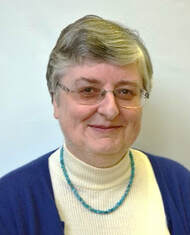 Associate Editor for Nutrition Dr. Sylvie Giger-Reverdin is working as a senior scientist for the French Research Institute in Agriculture Science (INRA), in the INRA-AgroParisTech Research Unit MoSAR (Systemic Modelling Applied to Ruminants), Paris, France. She graduated in Agricultural Science from the Institut National Agronomique Paris-Grignon (France), with specialization in Sciences and Engineering in Animal Science, Nutrition option and received a Master of Science in Nutrition and Feeding of domestic animals from the Paris VI University (France) in 1977. She obtained a Ph.D. in Agricultural Science from the Institut National Agronomique Paris-Grignon (France), with her dissertation titled “Influence of the composition of the concentrate on the nutritive value of diets fed to dairy ruminants.” Her main field of research concerns the nutrition and feeding of ruminants bred in intensive conditions, especially dairy goats, used as a model for dairy cattle. She has been especially involved in research on the nutritive value of concentrates, on the nutritive requirements of goats and on ruminal metabolism. For a couple of years, she has focussed on the effects of feeding behavior, and especially on the relationships between acidosis, feeding behavior and animal welfare in dairy goats. Dr. Sylvie Giger-Reverdin is an IGA member. Making the Case: Sustainable Livestock for Development
Livestock are critical for sustainable development yet often overlooked. The world’s cows, sheep, goats, pigs, poultry and other farm animals are the mainstay of livelihoods across the developing world. And the energy and nutrient-dense milk, meat and eggs these animals produce provide hundreds of millions of families in the world’s poorer countries with basic livelihoods, incomes, food and nutrition. |
IGA Blog
The International Goat Association promotes goat research and development for the benefit of humankind, to alleviate poverty, to promote prosperity and to improve the quality of life. Archives
May 2024
Categories
All
|
|
International Goat Association
2516 Millbrook Rd., Little Rock, AR72227 USA email: [email protected] -454-1641 |
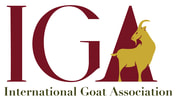
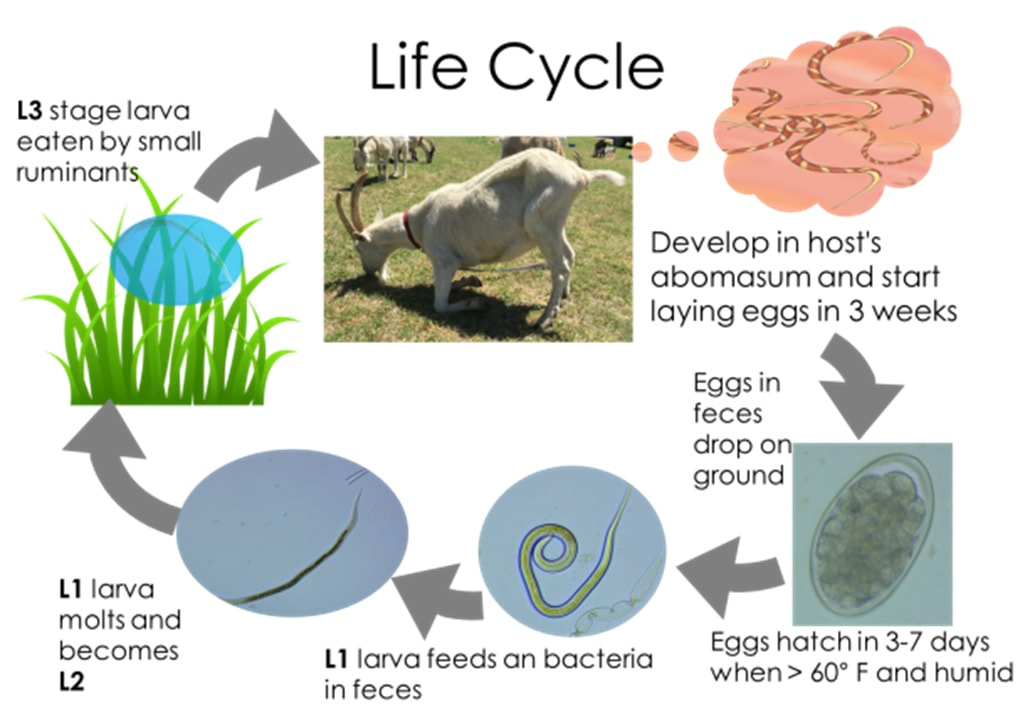
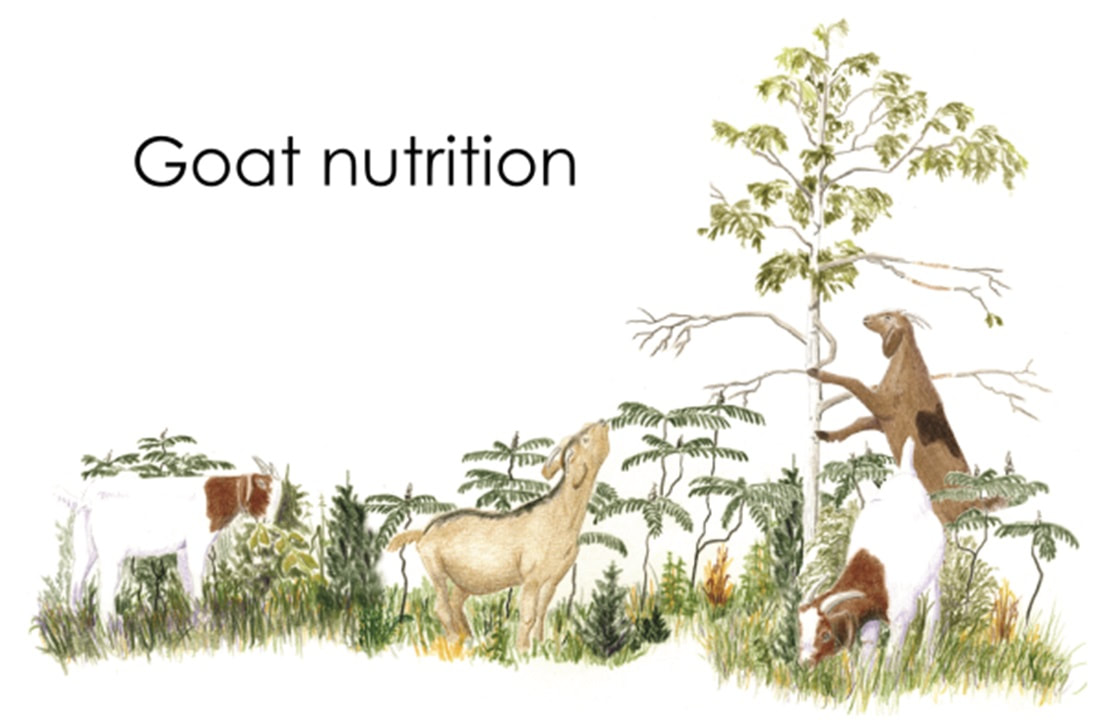
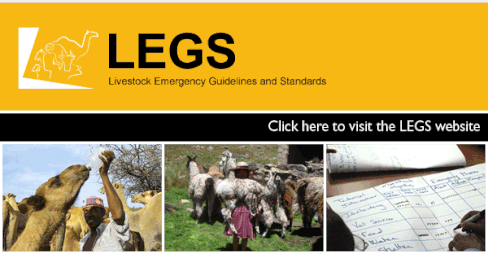
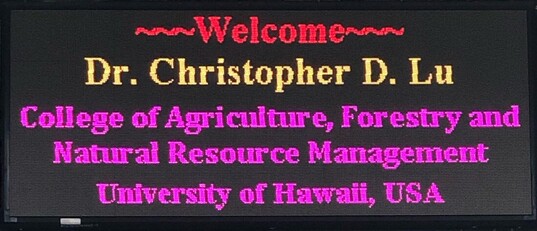
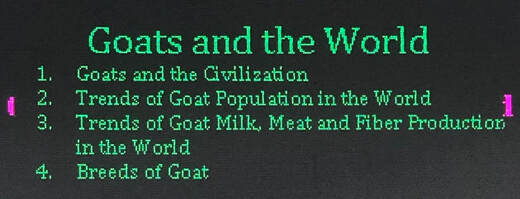
 RSS Feed
RSS Feed